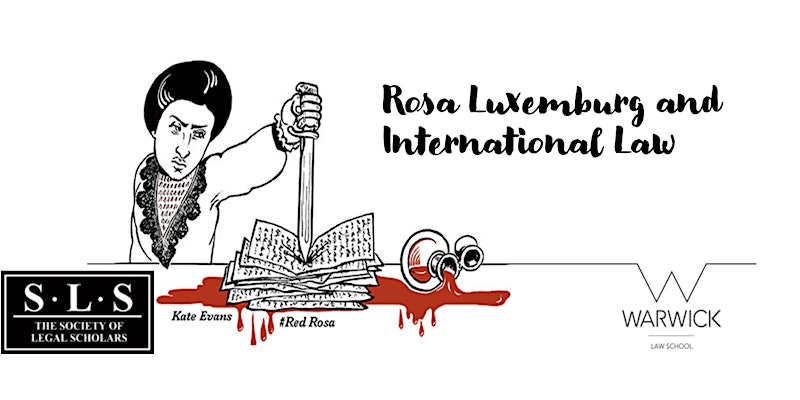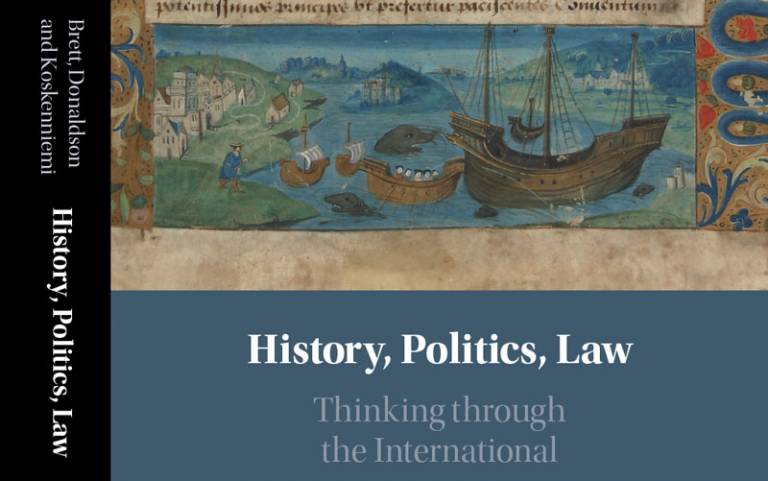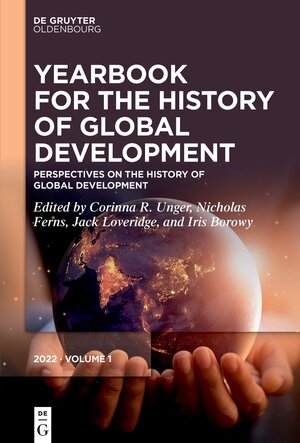 |
| Image source: event website |
Website of the European Society of International Law's Interest Group on the History of International Law.
ESIL Interest Group History of International Law

Friday 22 July 2022
WORKSHOP: Rosa Luxemburg & International Law, Warwick Law School (Zoom, 15 September 2022)
Thursday 21 July 2022
BOOK: Jonathan CONLIN & Ozan OZAVCI, They All Made Peace – What is Peace? The 1923 Lausanne Treaty and the New Imperial Order (Gingko, 2023)
 |
| Source: the Lausanne Project |
Tuesday 5 July 2022
CALL FOR PAPERS: "International Organisations and the History of Global Development", Yearbook for the History of Global Development (DEADLINE: 31 July 2022)
JOURNAL: Journal of Global History, Special Issue: Towards a Global History of International Organizations and Decolonization, Volume 17, Issue 2 (July 2022)
 |
| Source: CUP |
Special Issue: Towards a Global History of International Organizations and Decolonization
Eva-Maria Muschik
pp. 173-190
The League of Nations and the post-Ottoman recolonization of the Nile Valley: The imperial Matryoshka of Anglo-Egyptian Sudan, 1922–1924
Giorgio Potì
The league against imperialism, national liberation, and the economic question
Disha Karnad Jani
pp. 210-232
Malariology and decolonization: Eastern European experts from the League of Nations to the World Health Organization
Bogdan C. Iacob
pp. 233-253
‘With a minimum of bitterness’: decolonization, the right to self-determination, and the Arab-Asian group
Cindy Ewing
pp. 254-271
Select States, nations, and self-determination: Afghanistan and decolonization at the United Nations
States, nations, and self-determination: Afghanistan and decolonization at the United Nations
Elisabeth Leake
pp. 272-291
From administrative to political order? Global legal history, the organic law, and the constitution of mandate Syria, 1925–1930
Adam Mestyan
pp. 292-311
Three days in December: Jewish human rights between the United Nations and the middle east in 1948
James Loeffler
pp. 312-330
BOOK: Emmanuelle TOURME JOUANNET, Le droit international, le capitalisme et la terre. Histoire des accaparements de terres d'hier à aujourd'hui (Bruylant, 2021)
 |
| Source: Bruylant |
Description:
Le présent ouvrage étudie les liens historiques qui se sont noués entre le droit international et le capitalisme à travers le statut conféré à la terre. Il s’agit en fait de prolonger sous un angle nouveau notre réflexion sur les finalités du droit international et les critères empiriques de la justice sociale au plan international.
L’objet de ce livre est bien d’écrire une histoire portant sur le triptyque constitué par le droit international, le capitalisme et la terre, cette dernière servant à la fois de moteur originaire et de révélateur a posteriori des liens intrinsèques qui se sont noués à travers le temps et l’espace entre les deux premiers. En témoigne le phénomène contemporain de l’accaparement des terres. Depuis au moins deux décennies il se produit une véritable « ruée mondiale vers les terres » de la part de certains États et surtout des grands acteurs économiques privés pratiquant l’agro-business et l’agro-carburant.
Or l’ensemble des règles du droit international économique et du droit transnational des investissements a contribué à l’augmentation continue de ces accaparements et au fait que la terre fasse aujourd’hui l’objet d’une financiarisation à outrance qui va jusqu’à la dématérialiser. La terre devient un asset, une valeur refuge en bourse pour les investisseurs/accapareurs. De milieu tangible le plus concret, le plus immuable et matériel qui soit, la terre est passée à l’état d’un produit financier qui est par principe volatile, immatériel et impalpable. Ce faisant elle fait l’objet d’une exploitation intensive poussée à son extrême afin d’obtenir le plus de rendements possibles et donc de bénéfices.
Qu’est-ce que donc alors que la terre selon le droit international ? Est-ce un milieu, un espace ou un bien détenu en pleine propriété par l’être humain ? Est-ce le substrat de l’identité des êtres humains ou est-ce une marchandise ? D’où vient le besoin incessant de nouvelles terres qui a jalonné toute l’histoire humaine et que le droit international a licité tout au long des siècles ? Pourquoi tant de guerres et de contentieux pour des territoires ou la délimitation de frontières ? Pourquoi tant d’accaparements et de dépossessions de terres ou vivaient et où vivent encore des peuples autochtones ou des populations rurales démunies? Mais aussi quel est le rapport des questions liées à la terre avec la Nature et avec la Terre considérées comme un tout ?
Ce livre est une invitation à réfléchir à ces questions en cheminant à travers le temps.
Sommaire
Introduction
Chapitre 1 – Origines conceptuelles du discours juridique européen sur l’appropriation et l’exploitation de la terre – Le droit des gens moderne
Chapitre 2 – Moment colonial de l’accaparement des terres − Le droit international des nations civilisées
Chapitre 3 – Marché mondial des terres − Droit international de la société globale
Conclusion
More details on the publisher's website.
WORKSHOP: History, Politics, Law: Thinking through the International; and Koskenniemi's To the Uttermost Parts of the Earth, UCL (London/Zoom, 15 July 2022)
 |
| Source: UCL website |
Hybrid workshop: History, Politics, Law: Thinking through the International; and Koskenniemi's To the Uttermost Parts of the Earth.
Event Information
